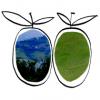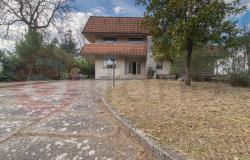OLD INFORMATION
Submitted by Gala Placidia on Sun, 06/28/2009 - 11:59In reply to A newbie all over again! by Annec
There is a wealth of information about this topic in the old forum. This is just one of the threads:www.italymag.co.uk/forums/gardening-agriculture/3941-olive-trees-planting-pruning-harvesting-etc.html Keep on doing searches using the words "olive grove" and you will get plenty of advice.You can also join our "Gardening" group and start a thread on the subject. It is an open group.Happy gardening!
In reply to A newbie all over again! by Annec
olive grove.
Submitted by sebastiano on Mon, 06/29/2009 - 03:29In reply to A newbie all over again! by Annec
i live in the marche and have olives.The first thing to consider is the kind of soil you have,because there are many places where you find clay.Olives grow very poorly in pure clay soils.also to consider is the position better if south-west or even east facing as opposed to north facing.Altitude is another factor over 500 metres don't bother.You are far better off buying very young plants of good quality of a fruiting variety if you want olives.These are readily available in large "vivai" mostly towards the coast.I would advise against buying large or well established trees because firstly they come very expensive secondly they might not like where you put them and die then you have a double loss.The young tree will have time to acclimatise to the new conditions and in time should do well.Despite the very small size of the plants you should consider making holes far bigger than you might normally have done,this is very important if there are objective soil problems in any case in the holes you could use a mixture of potting soil and dry good sandy soil and some of the surrounding soil to get the plants used to the conditions,the larger planting hole with good soil will help the young plant take off well and without finding for it's young roots immediately the barrier of hard unfriendly soil,obviously planting is better done in dryish soil not wet water logged conditions and preferably in early spring.The plants should be well spaced,we plant at 5 metres min we use 6 metres ,again despite the apparently small size of the little trees ( 2cm diamtre trunks ca.) The young trees will require a stake to avoid that high winds or snow can move or knock over the plants (use rubberized tying material which will not eat into the tree as does agricultural plastic string) depending on the shape of the tree/s you may have to make a wooden trellis in order to start to form the shape of the future tree but this could well be done after the first year.Keep the surronding ground well tended and free from weeds if you can establish a grassy surround this is good especially whilst the plants are young you will probably have to hoe around the base of the trees periodically to feed them there are specific foods for olive trees. Pruning starts even from very young this helps clear the plant of unwanted growth like round the base of the tree (suckers) and aiming to arrive at mature trees with the classic open crown form which will permit good fruit growth,air to circulate within the tree.but the main pruning questions come later on.You will have to think that 5-6 years after planting the trees will actually start to look like small trees and may be giving their first significant fruits.
Thank you very very much
Submitted by fellini on Tue, 06/30/2009 - 04:43In reply to olive grove. by sebastiano
Try This Site
Submitted by alan h on Tue, 06/30/2009 - 04:54In reply to A newbie all over again! by Annec
http://www.merlinsgrove.com.au/Background.htm but as its Australian - remember that 'North' means 'South'.
High-altitude olives
Submitted by Allan Mason on Tue, 06/30/2009 - 13:30In reply to A newbie all over again! by Annec
I agree with most of what Sebastiano advises (especially where he talks about the many advantages of young trees), but I dispute the flat statement that "Altitude is another factor over 500 metres don't bother." We're at 550 metres in the foothills below the Gran Sasso, and there are lots of olive groves at our elevation and some even a bit higher. At this height, we do get a fair amount of snow in the average winter, so when pruning the trees you need to give some thought to the stresses imposed by snow, but apart from that factor, growing olives here is much like it is at lower altitudes and nearer the coast. Looking around olive groves near us, it's apparent that cold has periodically killed off or seriously damaged a lot of olive trees at this elevation. There are few of the huge-trunked, ancient, gnarled specimens which you see at lower altitudes just a few kilometres away. But olives are incredibly hardy and vigorous and it's generally the case that even if prolonged cold kills the part of an olive tree above ground, they will rapidly send up new shoots. I'm not suggesting this altitude is optimal for olives. Clearly, even if trees will recover from trunk and crown death, having no production for a few years is a very important factor if you're a commercial grower. But from what I've seen reported on the old forum, the amount of olives we harvested from our trees was pretty average, as was the oil yield. I'd suggest that the best guide to whether or not olives are viable in your locale -- as well as the best source of information on how they should cared for -- is to look around and see what the locals are doing. Al
I think the amount of
Submitted by elliven on Tue, 06/30/2009 - 17:35In reply to A newbie all over again! by Annec
I think the amount of attention your trees will vary a lot depending on your particular care regime. Some folks around here turn over the soil below the trees with a tractor, some just turn over the soil around the trunk, others just strim twice a year, some use fertiliser, some not, nobody here irrigates but I hear that they do sometimes in America - and then there's spraying!As an aside what do folk get in yield from mature frantoio trees?
planting olives
Submitted by Sablanico on Fri, 07/10/2009 - 06:59In reply to A newbie all over again! by Annec
Hi,We have an old olive farm, so ours are not up to current standards, but I've studied the subject matter quite a bit.You can ask for advice from neighbouring farmers, but normally also at the local "consorzio agrario" they're able to give you some sound advice.If you plant from scratch, you should take young trees.Nowadays they are normally planted in rows running close to North-South (but this may not be possible if you're on a hillside)with distances like from 6x8 m to 6x4 meters, in a rectangolar pattern which makes tractor passing easier.The smaller distance, the more you'll have to prune (intensive olive growing), so think of how much time and work you intend to spend on this.As for the types of trees, cultivar, you may first see if there is a DOP for your region, and plant the cultivar admitted in this, then you'll have the possibility of certifying your oil later on..(well, perhaps a bit far out in the future, but...).In general stick to the classics of your region, they obviously grow best in that climate.If you're looking into producing supreme olive oil, you should study the organoleptic characteristics of these cultivar and choose the ones that produce the best quality, but here we are in the feinsmecker-area. Otherwise you'll take the ones that are less influenced by parasites etc. But, then again, the further you're up the mountain side, the less parasites become an issue.Remember, that some olive types are sterile, or cannot be pollinated by their own kind, so you may have to plant a pollinating cultiver each 10 trees, but the "vivaio" should be able to give you advice on this. My 2 cents,CiaoL.izPS. We have frantoio trees, but you cannot compare yields between different regions. Ours are 50 years old, and produce well, about 80 kg/tree of olives, but the oil yield is only around 13 %, which mainly depends of the soil, and that here has a relatively high clay-content, and the climate. Sometimes we're down to 11 %, but just up the hill the farmers have 14-16%, and in the next valley they may have 22%.
It's 11 years since your…
Submitted by Penguino on Fri, 11/13/2020 - 16:23It's 11 years since your post on planting an olive grove in Le Marche. So, how did it go? I am planning on doing the exact same thing this year (2-400 trees) in Provincia Ancona. Any advice? Where did you source your trees, how old, how did you space them, did you irrigate them, how are they producing now, etc...?
I would love to hear your reflections and recommendations.
Hoping to hear from you.













